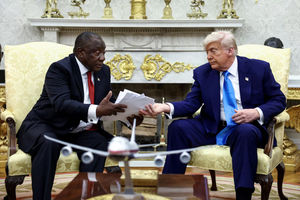Grants, credit funds spark hope for Tanzania’s innovators

What you need to know:
- For years, promising ideas have stalled at the prototype stage due to inadequate support, but with these new initiatives, the government is paving the way for researchers and innovators to transform their concepts into reality
Dar es Salaam. Tanzania has taken a bold step in the fight against climate change, unveiling initiatives to empower researchers and innovators with the tools they need to turn ideas into impactful solutions.
On December 3, 2024, 19 researchers were awarded a Sh6.3 billion grant to tackle climate challenges, marking a transformative moment for the nation’s science, technology, and innovation landscape.
The grants were unveiled during the 9th National Science, Technology and Innovation Conference and Exhibitions (STICE) in Dar es Salaam.
The event also introduced a Sh2.3 billion credit fund aimed at young innovators seeking to commercialise their products.
This is a turning point for Tanzanian innovation.
For years, bright ideas emerged but often stopped at prototypes due to lack of support.
Now, with these initiatives, the government is opening doors for researchers and innovators to bring their ideas to life.
Climate change has become a pressing issue.
Floods, droughts, and unpredictable weather patterns are taking their toll on communities.
To tackle this challenge, the government introduced Tanzania's National Climate Change Response Strategy (NCCRS) 2021–2026, focusing on advancing research, promoting clean energy innovations, and enhancing adaptation measures.
The minister for Education, Science, and Technology, Prof Adolf Mkenda, said the grants mark a pivotal step in this fight.
“We decided to provide a special grant through COSTECH (the Commission for Science and Technology) for 19 researchers focusing on climate change,” he said.
Among the recipients is Dr Alex Mwalimu, whose project explores clean cooking energy to reduce deforestation. For him, the grant is a game-changer.
“We’ve been working on this idea for years, but funds were a major obstacle. Now, we can scale up and make a real impact,” he said.
The Sh2.3 billion credit fund is equally significant.
It aims to bridge the gap between prototypes and market-ready products. For many young innovators, this has been the missing link.
An eco-friendly cooking technology developer, Ms Naomi Msuya, knows this struggle too well.
She brought her product to exhibitions but lacked funds to move beyond demos.
“Sponsors wanted something market-ready, which I couldn’t afford to produce. This fund gives me hope. It’s a chance to turn my concept into reality,” she said.
A former student at the Dar es Salaam Institute of Technology, Abdul Komba, shared a similar sentiment.
“I’ve had ideas that could make a difference. But without funding, they stayed as ideas. Now, things could finally change,” he said.
The fund’s focus on affordability is key.
Experts say flexible loan terms will be crucial for its success.
Beyond financial aid, mentorship programs are also expected to play a critical role in guiding innovators.
Tanzania’s commitment to science and technology is evident.
Since 2021, over Sh32 billion has been disbursed through the Commission to support more than 20 sectors, including agriculture, health, and energy.
The efforts have not gone unnoticed.
“Between 2015 and 2022, we attracted over Sh222.8 billion from development partners. These funds have built research capacity and strengthened innovation infrastructure,” said Deputy Prime Minister Doto Biteko.
The grants and credit fund are just the beginning. Innovators are eager to see tangible results.
An education expert, Dr Amos Kunde, said recognising researchers’ work is vital.
“This ends the notion that research is just academic. Now, researchers are motivated to make meaningful contributions to society,” he said.
The ongoing STICE conference is an opportunity for innovators to network and showcase their projects.
The theme, Harnessing Science, Technology, and Innovation for Climate Resilience and Competitive Economy, highlights the government’s vision.
“We hope this event will inspire policies that drive growth. This fund is an investment in Tanzania’s future,” said Prof Mkenda.





